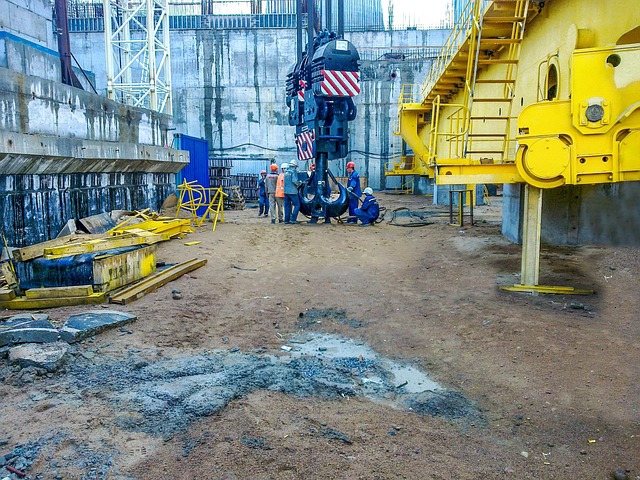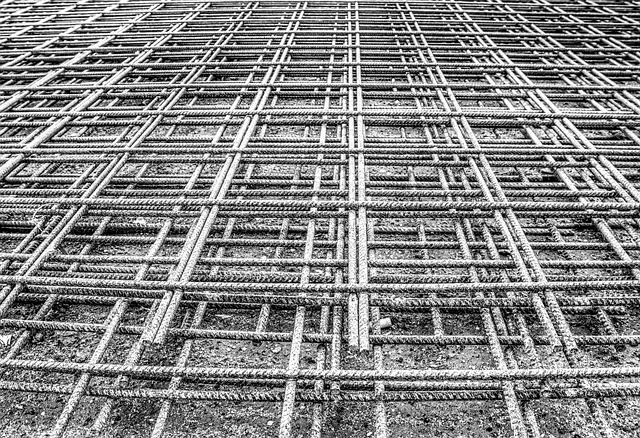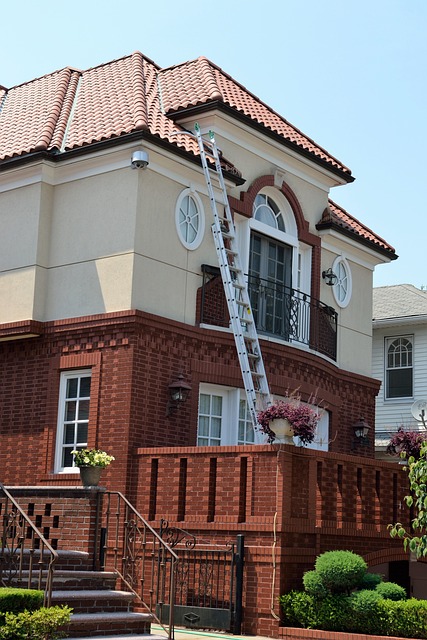Foundation inspections are crucial for maintaining building stability and safety. Regular checks identify issues like cracks, unevenness, water damage, and structural instability early, preventing costly repairs or collapse. A comprehensive inspection evaluates foundation walls, drainage, moisture intrusion, and overall structural integrity. A warranty for foundation fixing offers peace of mind, covering structural repairs, crack fixes, and settlement issues revealed through inspections. By prioritizing inspections and warranties, homeowners ensure their property's long-term value, stability, and a transparent relationship with contractors.
“Ensure the stability of your home with a comprehensive understanding of foundation fixing, a crucial aspect of home maintenance. This article navigates the intricate world of foundation health, exploring common issues that can arise and their significant impact on structural integrity. We delve into the essential role of a thorough foundation inspection, guiding you on what to look for during evaluations. Learn why a warranty for foundation work is often necessary, discover its key components, and explore the myriad benefits it offers homeowners. By understanding these aspects, you’ll be better equipped to protect your home’s most vital support system.”
Understanding Foundation Fixing and Its Importance

Foundation fixing is a critical aspect of structural integrity, ensuring buildings remain stable and safe over time. It involves identifying and rectifying issues within a structure’s foundation, which can include cracks, unevenness, or instability. Regular foundation inspections are paramount to prevent minor problems from escalating into costly repairs or even structural collapse.
A comprehensive foundation inspection by professionals is essential to pinpoint these issues early on. This process includes assessing the state of the foundation walls, floors, and any supporting elements. By addressing foundation problems promptly, homeowners can protect their investments, ensure the longevity of their properties, and maintain a safe living environment.
Common Issues with Foundations and Their Impact

Foundations are the backbone of any structure, and their integrity is crucial for the longevity of a building. However, over time, various common issues can arise, affecting the stability and safety of the foundation. These problems often go unnoticed until they reach critical stages, making regular foundation inspections vital. Some of the most prevalent concerns include structural cracks, uneven settling, water damage, and bowing walls.
Cracks, whether hairline or expansive, can signal underlying issues such as soil settlement, shifting tectonic plates, or poor initial construction. Uneven settling may result from improper compaction, excessive moisture, or changes in soil conditions, leading to gaps, misaligned doors and windows, and even structural deformities. Water infiltration is another significant problem, causing wood rot, metal corrosion, and mold growth, all of which weaken the foundation. Bowing walls, often caused by poor drainage or load-bearing capacity, can compromise the structural integrity of the entire building.
The Role of a Comprehensive Foundation Inspection

A comprehensive foundation inspection is an essential step in ensuring the structural integrity and longevity of any building. It serves as a thorough evaluation of the foundation’s condition, identifying potential issues that may go unnoticed during routine visual inspections. Professional inspectors employ advanced techniques and tools to scrutinize every aspect of the foundation, from the basement or crawl space to the surface.
This inspection process involves assessing cracks in walls and floors, checking for uneven settling, examining water damage, and verifying the stability of support beams. By identifying these problems early on, homeowners can take proactive measures to prevent further deterioration. A detailed foundation inspection is a crucial element in maintaining a safe and secure living environment, underscoring the importance of regular maintenance and prompt repairs to avoid costly structural damages down the line.
What to Look for During a Foundation Evaluation

When conducting a foundation evaluation, several key aspects should be scrutinized to ensure the structural integrity and longevity of your building. A comprehensive foundation inspection involves assessing the overall condition of the foundation walls, including cracks or unevenness, which could indicate underlying issues. Inspectors should also check for proper drainage around the foundation, as water accumulation can lead to severe damage over time.
Another crucial element is verifying the stability and alignment of the foundation with its surrounding structure. This includes examining floor levels, doors, and windows to ensure they are level and not displaying signs of settling or shifting. Moreover, looking for signs of moisture intrusion, such as water stains or mold growth, is essential, as these could point to serious problems like leaks or poor waterproofing.
When Is a Warranty Necessary for Foundation Work?

In many cases, a warranty for foundation fixing is essential to protect both homeowners and contractors. A foundation inspection is crucial to assess the extent of any damage or issues before beginning repair work. This step is vital as it determines the scope of the project and helps set realistic expectations. If significant structural problems are identified during the inspection, it becomes imperative to have a comprehensive warranty in place. Such a warranty ensures that any flaws or defects discovered after the initial fixing are addressed without additional costs, providing peace of mind for homeowners.
Additionally, having a warranty offers a safety net for contractors who have invested time and resources into repairing foundations. It allows them to safeguard their reputation and demonstrate their commitment to delivering high-quality work. Moreover, warranties can serve as a legal framework, outlining the responsibilities of both parties should any complications arise during the repair process or in the future, ensuring transparency and fairness throughout the entire project.
Key Components of a Solid Foundation Warranty

When considering a warranty for foundation fixing, it’s crucial to understand the key components that ensure comprehensive coverage and peace of mind. A solid foundation warranty should encompass several critical elements. Firstly, it must include a detailed description of what is covered, such as repairs related to structural issues, cracks, or settlement problems identified during regular foundation inspections. These inspections are vital for early detection of potential issues, allowing for prompt action and preventing minor problems from turning into major, costly repairs.
Additionally, the warranty should specify the duration of coverage, whether it’s on a time-based or issue-based premise. It must also clearly define the responsibilities of both the homeowner and the contracting company. Terms related to maintenance practices, such as regular inspections, proper drainage, and avoidance of excessive moisture near the foundation, can be included to ensure that proactive measures are taken to maintain the integrity of the structure.
Benefits of Having a Warranty for Your Home's Foundation

Having a warranty for your home’s foundation offers numerous benefits that go beyond simply protecting your investment. A robust foundation is essential for structural integrity and the long-term value of your property, which makes a comprehensive warranty an invaluable asset. It provides peace of mind, assuring homeowners that any potential issues with their foundation are covered, allowing them to focus on enjoying their living space without constant worry.
Moreover, a warranty can streamline the process of repairing or replacing foundational problems. When issues arise, whether due to shifting soil, poor construction, or other factors, having a warranty in place means you can access reliable and prompt service. This not only saves time but also ensures that any repairs are carried out by qualified professionals who understand the intricacies of foundation work, ultimately enhancing the longevity and stability of your home’s foundation.
Choosing the Right Warranty Option: Tips and Considerations

When considering a warranty for foundation fixing, choosing the right option is essential. Start by understanding your specific needs through a thorough foundation inspection. This step involves professional evaluators who can identify potential issues and assess the extent of repair required. Based on this evaluation, select a warranty that aligns with your project’s scope and your budget.
Look for warranties offering comprehensive coverage, including labor and materials, to ensure peace of mind. Compare different plans, considering factors like duration, exclusions, and terms of renewal. Opting for a reputable provider known for quality service and customer satisfaction is also crucial. Remember, the right warranty protects your investment and provides long-term security for your home’s structural integrity.
